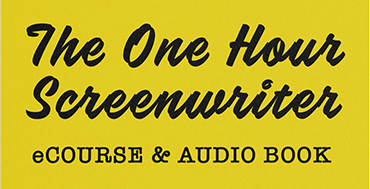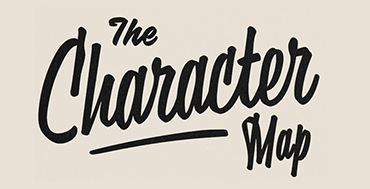 I feel like the Grinch that stole the Oscar joy– Martin Scorsese’s Hugo is yet another acclaimed Oscar-nominated film I didn’t like. These critics echo my sentiments exactly–
I feel like the Grinch that stole the Oscar joy– Martin Scorsese’s Hugo is yet another acclaimed Oscar-nominated film I didn’t like. These critics echo my sentiments exactly–
The plot of Hugo, Martin Scorsese’s much-anticipated foray into 3D filmmaking, hinges on a clockwork mannequin. He’s an outstanding piece of craftsmanship, carefully fashioned from antique components, terrifyingly expensive-looking and beautiful to behold. But the mechanisms whirring away inside him are plainly visible – for all the technical wizardry required to piece him together, he’s still very obviously not alive. He’s a perfect metaphor for the entire film.
Robbie Collin The Daily Telegraph, UK
The plot of Hugo, Martin Scorsese’s much-anticipated foray into 3D filmmaking, hinges on a clockwork mannequin. He’s an outstanding piece of craftsmanship, carefully fashioned from antique components, terrifyingly expensive-looking and beautiful to behold. But the mechanisms whirring away inside him are plainly visible – for all the technical wizardry required to piece him together, he’s still very obviously not alive. He’s a perfect metaphor for the entire film. Robbie Collin, The Daily Telegraph, UK
Here’s what a friend has to say on Rotten Tomatoes:
Yes it is magical. And yes, the effects and photography and direction are amazing. But it doesn’t add up. The main problem is that Hugo, the central character, is not interesting. Everyone around him is colorful and fascinating, but his needs and destiny should be the driving force behind the pic. Lots of slapstick, and frenetic action, but little of it is organic to Hugo’s main problem – so a feeling of emptiness prevails, and you wonder why you don’t feel anything after it’s over. Because the plot resolution is ‘solved’ be a series of random diversions. Frank Gannon
Other critics agree:
Audiences are sure to turn out for “Hugo” in huge numbers, since its spectacle functions in the service of a reunion fantasy that restores the young hero and the aged Méliès to their proper places in the world. Yet thematic potency and cinematic virtuosity—the production was designed by Dante Ferretti and photographed by Robert Richardson—can’t conceal a deadly inertness at the film’s core. Joe Morgenstern, The Wall Street Journal
Despite the connotations of a heart-shaped key, the two leading children never seem to connect on a level deeper than ordinary friendship. Worse than that, the major element that changes in the movie, involving the boy’s relationship with the old toy-shop owner, is accomplished accidentally — not because Hugo is trying to save Georges’ soul. All of these aspects are ones that Dickens would have made blossom with emotion: Scrooge’s transformation, Pip’s awed adoration for Estella in Great Expectations, the cruelty of authority figures suppressing children’s dreams. Gorgeous as Hugo is, it never feels like childhood, never delivers the terror, the sense of injustice at grown-up rules, the exhilaration of discovery when all is new. Kyle Smith, New York Post
The result is a movie that’s kinetic yet slow, whose joys are architectural more than spiritual. The camera swoops through corridors and skirts around corners, with every bit of art decoration in perfect focus, every metal surface gleaming. Sometimes the movie’s beauty is its own reward. An automaton at the center of the story, with its human face looking mournful and impassive, is one of the year’s great movie props, an evocative masterpiece of design. But the human characters feel mostly under glass, more emblematic than real, their pains and terrors just elements in the landscape. Mick LaSalle, San Francisco Chronicle
Why does the film feel so empty? The characters are in service to the plot and not the other way around. If a story is to endure, then plot must come from character. Otherwise, the filmmakers are pushing the characters around like chess pieces on a chessboard, with little regard for the authenticity of their emotional journey. That is the case in Hugo.
.
Characters that exist to advance a plot tell us nothing about the human condition. They don’t speak to us profoundly about how our choices determine who we are. They don’t move us to reflect on our own lives or on our relationships with others. They are amusements that last little longer than a thrill ride at a theme park. Those rides can be fun and exciting but they never stick with us for long. They make no powerful contribution to our collective humanity.
.
I believe the stories we tell ourselves and tell each other have the power to change who we are. If you want to change your relationship with someone, then you have to change the story. Stories can change lives. Before we can become something we have to imagine how to do that and then construct a narrative that makes the change possible.
.
If you’ve ever attended one of my classes or seminars, you’ve heard me say that storytellers are the most powerful people on earth because they have the power to move the human heart. There is no greater power. You cannot move hearts by relying on plot mechanics, set design or masterful camera direction. You have to illuminate, through your characters, what exactly it is to be truly and fully human– how we fall short and how we reach up and touch the stars.



No comment yet, add your voice below!